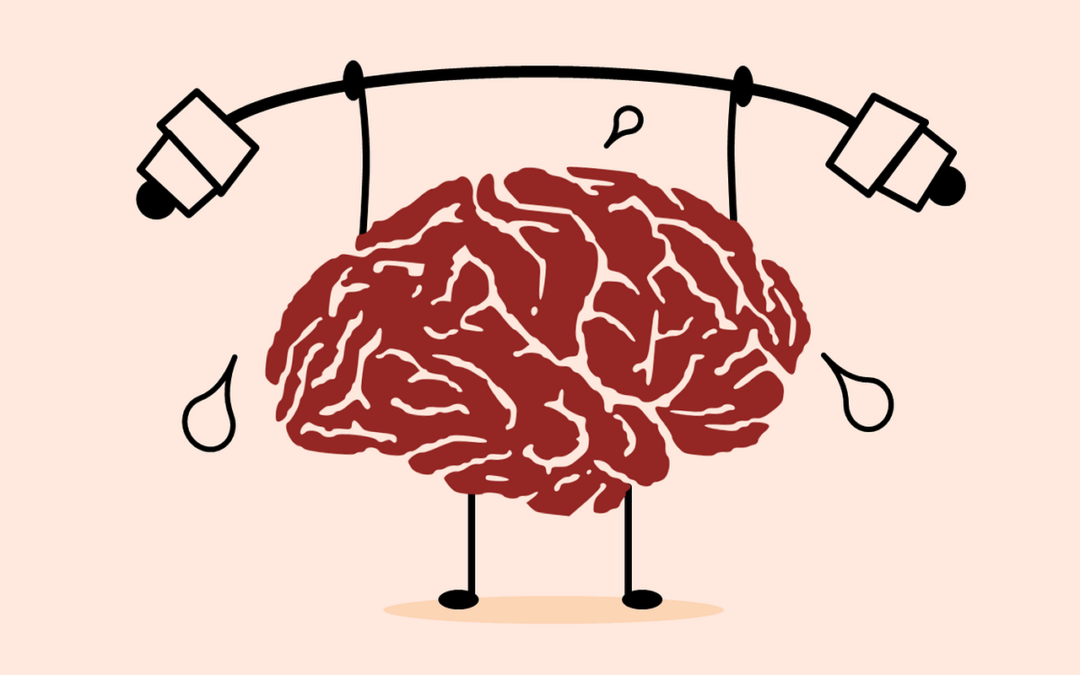Science has undoubtedly proven what fitness experts have known for decades – mental health and physical activity are directly linked. Although many consider this old news, the latest research proves the correlation is much greater than previously thought.
Here’s why both fitness and psychology experts recommend weightlifting for mental health improvement.
Quick Answer – Importance Of Weightlifting For Mental Health
Among its many mental health benefits, resistance training such as weightlifting is shown to lower depression, anxiety, and fatigue and improve self-esteem, sleep quality, and cognitive functions.
For these reasons, exercise has become more prevalent in mental health treatment and recovery.
What Are The Benefits Of Weightlifting For Mental Health?
Exercise Is A Natural Antidepressant
Globally, depression has been on the rise, especially among teens and young adults.
Although it is debated whether the number increase is real or just a result of normalizing seeking mental help in modern society, the fact of the matter is that more people are being diagnosed and treated with medication, such as antidepressants.
However, in recent years, fitness experts, sports psychologists, and other professionals have begun arguing against medication – which has short-term benefits after intake – in favor of physical exercise – which has been proven to have long-term mental health benefits.
As recently as 2021, Harvard Medical School reported that exercise treats depression arguably better than medication in non-severe cases, especially long-term.
Weightlifting Improves Motivation And Discipline
One of the most common symptoms of conditions such as depression, anxiety, and more serious examples such as ADHD is a lack of motivation and discipline.
People experiencing these conditions describe lacking energy, feeling tired, being unable to set and achieve goals, forgetting to do tasks, and similar.
Physical activity naturally raises energy levels through increased heart rate and brain activation. Setting a workout schedule and sticking to it is a great short-term goal that helps with maintaining discipline.
Weightlifting as an exercise is an excellent motivator since the results are quantifiable and easier to set short and long-term goals with.
These are just some of the reasons why fitness experts recommend lifting exercises for mental health improvement.
Related:
- Understanding How a Healthy Lifestyle Influences Mental Health
- Feel Better Bouldering: How Climbing Can Help Your Mental Health
Weighted Exercises Regulate Hormone Levels
Improper/low hormone levels are directly linked to a lack of physical activity, which has especially negative effects on development in young adults and teenagers. As a result, these people are prescribed hormone intake through medication, which has its own negative side effects. Weightlifting, on the other hand, is a proven hormone regulator.
There are three main hormones known to increase in levels during weightlifting exercises – Dopamine (DA), Noradrenaline (NE), and Serotonin (5-HT).
Dopamine
Dopamine, also known as the feel-good hormone, regulates feelings of pleasure, motivation, and reward. Repetitive activities such as exercise release dopamine and make us excited to do them. Higher dopamine levels result in better overall mood and higher attention. Low dopamine levels are linked with conditions such as depression, Parkinson’s disease, and attention deficit hyperactivity disorder (ADHD).
Noradrenaline
Noradrenaline, more commonly referred to as Norepinephrine in medical spheres, is a neurotransmitter and hormone produced and released by adrenal glands. When performing high-intensity exercises such as weightlifting, the body experiences stress, and norepinephrine levels increase. As a result, attention, alertness, and energy levels increase, and the body feels “fully awake”. Low Norepinephrine levels are linked to anxiety, depression, and attention deficit hyperactivity disorder (ADHD).
Serotonin
Similar to Dopamine, Serotonin is a neurotransmitter that plays a crucial role in regulating mood and emotions. Proper Serotonin levels in the brain reduce negative emotions such as anxiety, sadness, and aggression and increase positive behavior such as dominance, calmness, and confidence.
The impact of Serotonin on exercising for mental health is best felt after working out when we feel most positive about our self-image. Physiologically, adequate Serotonin levels improve our sleep, appetite, and digestion, leading to an overall physically healthier lifestyle. Low levels of Serotonin in the brain are linked to depression and other mood disorders.
FAQ
What Are The Best Weightlifting Exercises?
The two most common weightlifting exercises are the Snatch and the Clean & Jerk. These exercises are widely popular as they provide a near full-body workout that trains everything from strength, mobility, coordination, and more.
Both the Snatch and the Clean & Jerk are established competitive weightlifting exercises found everywhere from amateur competitions to the Olympic Games.
Does Exercise Improve Mental Health?
In general, exercise and physical activity have various mental health benefits – from balanced hormone levels to increased motivation, and better self-image. In fact, experts believe that lack of physical activity is one of the main driving factors behind the recent mental health crisis among young people, making exercise more important than ever.
Exercising For People With Depression
Does Weightlifting Lower Depression?
Among many positive effects, studies have proven that lifting exercises for mental health lower depression, especially in non-severe cases. In addition, weightlifting is proven to regulate important hormones such as Dopamine, Noradrenaline, and Serotonin.
Conclusion
Regular exercise is being prescribed more often than ever before for treating mental health. Weightlifting benefits for mental health have been on the rise in popularity due to more natural and long-term results compared to medication.
Does lifting have a positive effect on your mindset?
Which weightlifting exercise do you look forward to the most?
Leave a comment letting me know and remember to follow me on social media for more workout tips and fitness content.
Author: Ihor Shymechko
My name is Ihor, and I have been a professional weightlifter since 1996. With over 20 years of competition experience, my resume includes being the European Champion in 2009 and the silver medalist at 2011’s Senior World Championships –105kg division. I competed at the 2008, 2012, and 2016 Summer Olympics. After hanging up my own competitive lifting shoes, I decided to share my huge background as a coach. I am currently coaching multiple athletes who are competing at national and international competitions.

